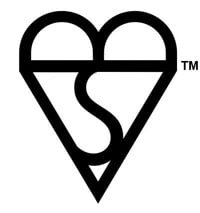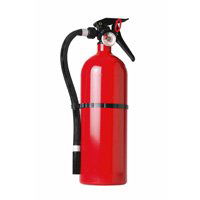New goods and services come to market after a sequence of activities:
- research
- development
- testing
- production and launch.
This case study shows how BSI British Standards (BSI), the UK”s National Standards Body, supports businesses at every step of this process.
BSI was the first national standards-making body in the world. It started in London in 1901 as the Engineering Standards Committee. Today it is part of the BSI Group with offices throughout the world.
BSI is perhaps the best-known standards provider in the world. As well as facilitating the creation of British Standards, BSI publishes information about standards, safety and efficient practices. Along with other organisations, it supports training to show people how to use and work with the standards. As the UK’s National Standards Body, BSI also represents UK interests across all of the European and International Standards committees.
A standard is a voluntary code, not a regulation. This means that companies can choose whether to apply a standard. However, there are a number of major benefits from using standards:
- Standards protect consumers. They can be confident that the products they buy will be safe and reliable.
- Standards encourage the development of new technology and services. Businesses developing new technologies work with BSI to provide safe goods and to introduce efficient processes.
- Industry benefits because the standards are recognised internationally. Businesses that apply standards are recognised as providers of quality goods. This enhances their reputation and helps them to increase sales.
Most new products and services are the result of research. Sometimes innovations result from a moment of inspiration. More often, they come from looking at what others are doing, what the market wants and what is acceptable. This is known as research.
Standards offer benefits throughout the research process. A standard is an agreed, repeatable way of doing something. Standards are guidelines about how things can be made or done more efficiently and safely. Standards help to make life simpler. They increase the reliability and the effectiveness of many goods and services. They help to lower costs and reduce the time it takes to develop a concept into a marketable product. This promotes innovation. It means businesses can develop new products and services more quickly. The result is that they can recover their initial investments much faster.
Each standard has a number and description. This shows if it is a British (BS), European (EN) or International (ISO) Standard. For example:
- BS 7907:2007 gives recommendations for the design and manufacture of children’s clothing to promote product safety. This standard is applicable to clothing for children up to 14 years of age. It gives recommendations on safety aspects of the packaging and display of children”s clothing, including guidance for retailers. It is intended for use at all stages of the clothing supply chain, including use by designers, manufacturers, importers, distributors and retailers of children”s clothing.
- If someone buys a T-shirt from a company that uses the BS EN 20105 standard, then that customer should expect that the dye will be colour-fast and not run when washed at the right temperature.
BSI supports the research that goes into innovation and product development. By working with different companies, BSI is able to identify best practices. It uses this to create standards. These standards provide a framework for the development of new products, services and processes. By working to a standard, new product developers can be sure that what they produce will meet the needs of consumers.
Standards and new technologies
Businesses researching new technologies also benefit from looking at relevant standards. For example, BSI is playing a major part in supporting nanotechnology research. Nanotechnology is a breakthrough in product development. This area of science involves developing products by controlling the arrangement of individual atoms. Early applications of nanotechnology were mainly related to materials, providing an innovative process for introducing additives to plastics and steel.
Many industries are now using nanotechnology to develop new products. The technology is being used to produce car parts, clothing and wax for skis. BSI has created a standards framework for nanotechnology, including a common language and guidelines on best practices. This means that everyone in the nanotechnology field of research is using the same words and working to the same principles.
New products and new businesses are important as they promote growth in the UK economy. BSI plays an important part in supporting the development of new products, processes and services by setting out specifications and guidelines for companies to follow.
Standards support innovation by setting codes of practice, specifications and guidelines. The benefits include:
- sharing best practice
- setting benchmarks for performance, quality and safety
- defining technical requirements
- reducing risks
- reducing costs
- ensuring related products are compatible.
By following best-practice guidance, businesses can improve their processes, allowing them to increase efficiency and become more profitable. Designers can focus on developing better products.Standards provide a common framework for products that need to work together. For example, all CDs are the same size so they fit into different CD players around the world.
As with all good design and manufacturing solutions, group work underpins the development of standards. A team of experts discuss what factors are needed to make a product safe, reliable and of high quality. This panel creates a list of rules, ideas and tests that a product or process needs to meet. This covers both goods and services. The development of standards for services is very important: 75% of the gross domestic product in the UK economy comes from service-based industries.

Developers have to be sure that the products they produce will be safe and durable. For example, research shows that safety is parents’ first priority when buying toys. There would be no point in developing a brilliant new solar-powered toy if it proved to be dangerous to children. Consumers would also complain if the toy breaks too easily.
BSI provides standards to ensure toy manufacturers work to the highest levels of quality and safety. These standards guide manufacturers on many aspects, including age warning labels, use of chemicals, requirements for indoor and outdoor toys and equipment and safety labels. By working with these standards, designers and manufacturers can produce products in which parents will have confidence.
Testing is essential when bringing new products and services to market. Businesses need to know that the products they sell to customers meet all requirements for safety and functionality.

The idea of fitness for a purpose is an important one. Products need to meet consumers’ requirements. For example, zip or another type of fastener should fasten a garment in the way expected.
It is important for companies to be aware of the technical requirements, pre-testing and certification that businesses need to compete in most countries in the world. For example, if a British company wants to sell fire alarms in China, Australia and India, certification bodies can outline and provide the necessary certification.
Recognising standards
A product with a Kitemark means BSI has independently tested it and has confirmed that the product conforms to the relevant British Standard. At this stage, a BSI license is issued to the company to use the Kitemark. The manufacturer pays for this service and their product is tested, and the manufacturing process is assessed, at regular intervals.
For most standards, compliance is voluntary. However, some standards are essential. Some products, like fire extinguishers, must meet the appropriate health and safety regulations. Without relevant certification, they cannot be sold legally. The CE marking attached to a product is a manufacturer’s claim that it meets all the requirements of the European legislation. It is mandatory for some products like toys.
Many manufacturers and exporters need a third-party certification on their products from a Notified Body. A Notified Body provides an independent assessment of the quality of the products. Crash helmets are an example of a product which needs to be independently tested so that it can comply with this European Directive. Once a crash helmet has been tested and certified by a Notified Body, it can then be sold on the market to consumers.
BSI helps companies from development all the way through to product launch and marketing. During pre-production, the standards provide a framework to develop products. Testing ensures quality.
Trained assessors and inspectors will check that processes and production comply before products are considered ‘fit for sale’. For example, scuba divers need secure equipment, like oxygen tanks. Oxygen tanks require testing to ensure they are able to sustain the conditions and pressures of deep water.

Benefits of standards
Working to internationally recognised standards brings many benefits to a business:
- It helps attract customers and assures them that products and services are safe and reliable. This encourages them to buy.
- It demonstrates market leadership. Businesses applying standards will be able to partner with other certified companies and increase sales.
- It creates competitive advantage. A company applying standards will appear more attractive than its rivals.
- It develops and maintains best practice within a business. Applying standards can improve operational productivity and reduce costs.
Standards and certification provide the support that businesses across the globe need to develop new products and to ensure quality.
International standards enable other countries to accept and use new product ideas. Standards and certification can remove barriers to trading in overseas markets. They can help businesses to become world leaders.
Innovation is the lifeblood of the economy. New products, processes and services are continually coming onto the market. Innovative product developers are continually researching and developing new ideas. However, they need a framework in which to operate so that manufacturers know that their products will meet the requirements of local and global markets.
Standards are important in developing new ideas. They are just as important in maintaining smooth running systems for manufacturing products and in providing services to customers.
BSI can support every stage of the process. It creates standards, provides advice, supports research, all of which enables testing and certification.
 Supporting business through standards (MP3)
Supporting business through standards (MP3) 